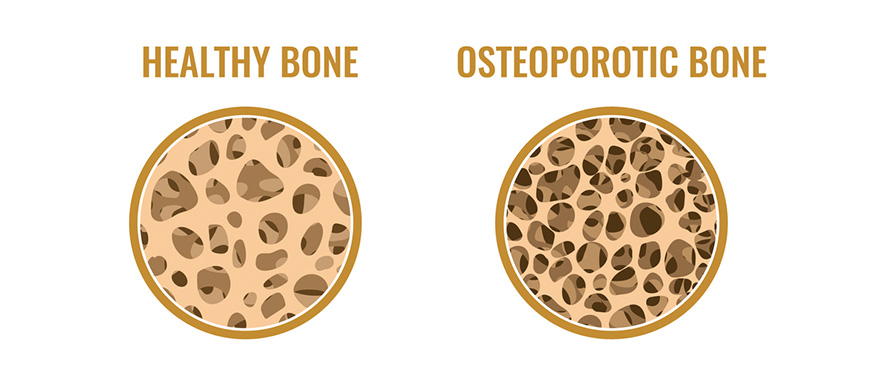What is vitamin D deficiency?
Vitamin D deficiency can cause muscle weakness and painful bones. Children with vitamin D deficiency can experience poor growth, tooth delay and find that their bones start to bend out of shape due to a condition known as Rickets. A lack of vitamin D can cause a general sense of being unwell, feeling tired, perhaps with vague aches and pains.
Therefore, a deficiency in vitamin D puts you at risk of developing certain conditions such as:
Rickets (in children) and Osteomalacia (in adults). These conditions cause pain and discomfort in the muscles and bones, which become weak and soft. In some cases, the bones may become deformed.
Osteoporosis. This condition causes pain and discomfort in the muscles and bones, which become brittle, weak and prone to fracture. It is important to ensure you are getting enough calcium and vitamin D for good bone health.
Some interesting facts about Osteoporosis
33% of women aged 60-70 & 66% aged 80 or older have osteoporosis.
1 in 3 women, and 1 in 5 men will experience a fracture after the age of 50.
Calcium and vitamin D play an essential role in reducing hip fractures.
Taking calcium and vitamin D medication can reduce the risk of hip fracture by 29%.

